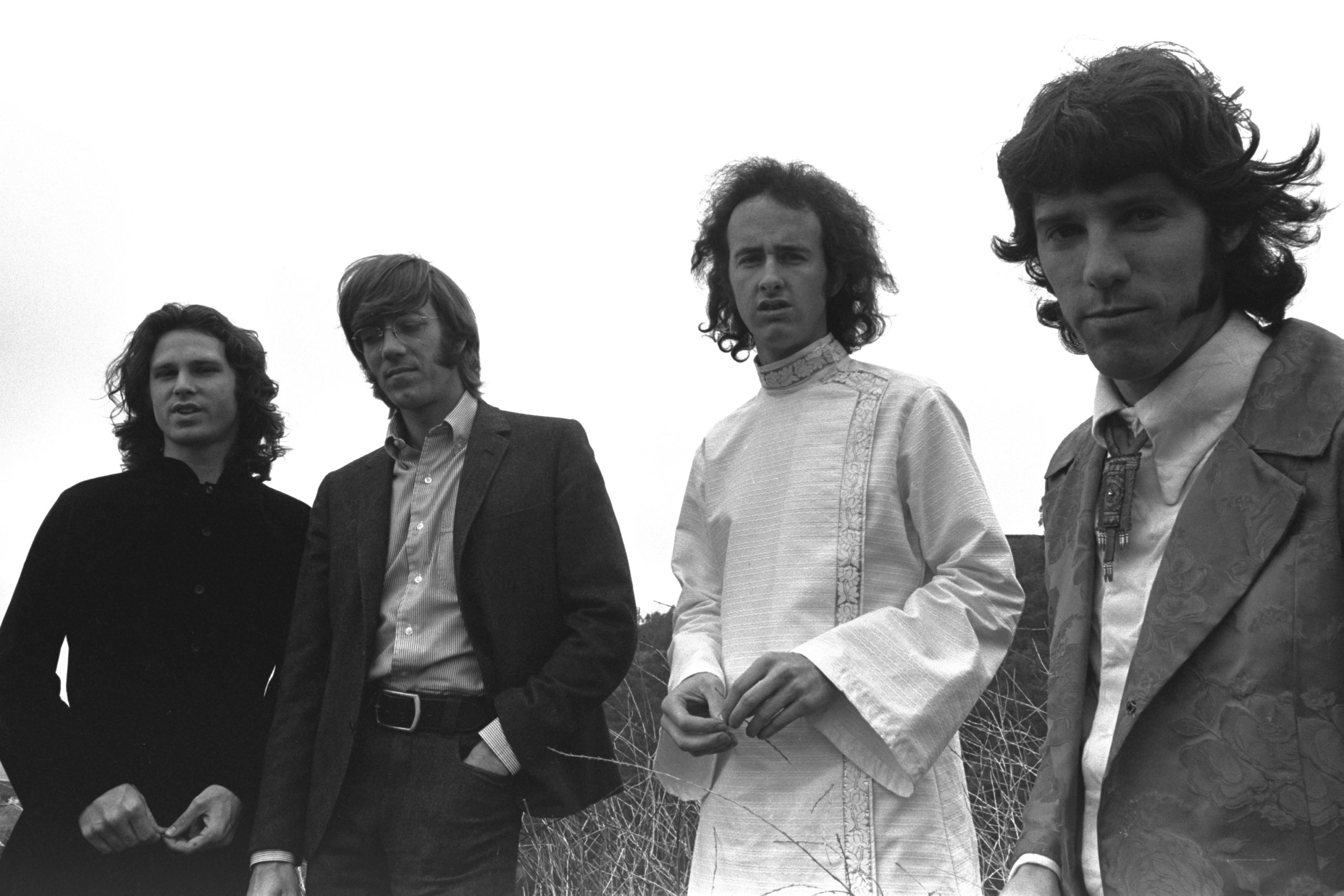Published in the Los Angeles Free Press
Written by JUDITH SIMS
I’d heard about Long Beach; I knew it was south just about everyone, on the ocean. I’d actually been to the Long Beach Arena once, in 1965 when the Rolling Stones, the Byrds, and Paul Rivere and the Raiders were there, also a man called Jerry Naylor. But in the ensuing five years I’d forgotten just how FAR AWAY Long Beach really is. I didn’t even pack a lunch.
But I did arrive at the giant pillbox on the ocean; I knew when I was getting close because all the cars in the traffic jam were filled with hair and tambourines.
I though I had timed it just right, but I was early—the Flying Burrito Brothers were still on. They’re not bad, not really; they could be quite good if they ever wake up. The crowd reaction matched the group’s: desultory.
Albert King strode on, exhorted the audience to say “Yeah!” which they did, and then they had to say “Yeah!” again, filling the aisles, crowing the front, clapping along. I saw three black people in the audience, but the young white girls in long dresses and bare feet pretended to be spade, and it didn’t really matter because Albert seemed to be enjoying himself enormously. He left the stage with arms wide, a peace sign on each hand. About two minutes alter the cheering and stomping brought him back for a nice long encore.
Intermission brought the house lights and warnings from the stage—stay in your seats, keep the aisles clear or the concert will be stopped. Pockets of fans were routed out of corners, reluctantly returning to seats (those who had them); most of them perched on the floor near the sears, apparently thinking they were invisible there.
Lights down; “Please bear with us while we make a five minutes sound check.” With the dimming of the lights came the forward surge. (“He’s there, I see him!” from a girl in fringe, a frantic whisper.) (“He’s so bitchin’ “ agreed her friend in wool shawl.)
Lights up. Morrison, center stage, unleashed a hoarse scream and followed with a new song, “Road House Blue,” a loping song, almost good timey. He stood there and sang it, no leaping or prancing. His left hand over his left ear, right hand grasping the microphone—the Morrison stance. No leather, no beard, medium hair.
For nearly two hours the Doors played MUSIC. When the instrumental breaks came, Morrison turned his back to us, bending close to the drums, shaking maracas. He didn’t even ask the audience for a cigarette. He sang, sang very well despite a voice all cracked and husky from four sets in San Francisco. They played “When the Music’s Over,” did a medley of “Alabama Song” and “Back Door Man” and “Soul Kitchen,” ran through some songs on the new album like “Peace Frog,” “Maggie Magill,” “Ship of Fools,” “Spy in the House of Love,” and “Freedom Man” (which I think they call “Universal Mind”). With only one exception—an incredibly insipid love song called “Blue Sunday”—the new songs recapture that rhythmic lilt of their first album, and the performance has come full circle too. Low key, straightforward, no nonsense, except an occasional scream and one galloping prance across the stage which was too controlled to be irrational.
They closed with “Light My Fire,” but they didn’t really. They came back and announced they would stay all night if we wanted. We wanted.
A few minutes later the audience took advantage of the between song silence to should requests. “Ok,” Morrison said, “which song do you want to hear?” There was a full throated roar. “Hey, this is impossible, I can’t hear anything,” Morrison complained as if he was genuinely surprised that he didn’t hear one clear bell-like voice with one simple request coming from 15,000 people. Finally he settled the dispute “democratically, by vote.” The old applause meter in his head indicated that we favored “Crystal Ship” more than “Touch Me,” so he started “Crystal Ship.” His voice was going fast. Two bars into the song, he stopped the group and apologized; “There’s nothing worse than an out of tune Crystal Ship.”
Several minutes later Morrison announced a song “that traditionally finalizes things,” and the opening notes of “The End” started up.
More relaxed Doors concert I had ever seen. There was only one moment of tension, and that was handled briefly and casually. A heckler near the stage kept bugging Morrison, demanding Albert King. “Yeah, we’d like to hear him too, but he’s gone, so you’re stuck with us.” The heckler didn’t shut up. “You know sometimes I wish there weren’t a democracy,” Morrison mused, “because if it wasn’t, we could take this guy out somewhere and beat the shit out of him.” The audience cheered.
When it was all over, there was further testimony to the New Doors—a press party in the bowels of the arena, food and drink on long tables with white tablecloths and all four Doors circulated amongst the people. I couldn’t recall any instance in the past three years when the Doors had allowed themselves to get that close, to be that unprotected with that many people.
“This was a test run for us,” John Densmore noted. “There were plainclothes detectives and vice squad all over the place, but Jim didn’t say fuck so I guess we’re O.K..”
Better than ever, I’d say.

